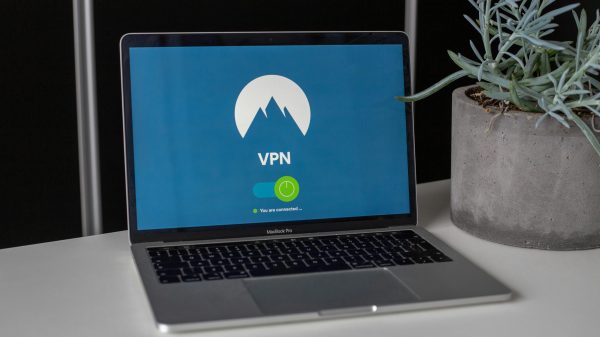There is a high time in this high-tech business environment for sustainable development and to set ambitious goals that require unprecedented efforts in numerous economic, social as well as environmental fields. Technological advancements play a pivotal role in achieving these global agendas. Perhaps technological innovations are enhancing living standards and prove to be reshaping the dimensions of economies through swift productivity and by decreasing production cost. Unfortunately, data breaches and identity theft casing are coming into being at a swift pace with the passage of time especially after the pandemic of COVID-19. Coronavirus was a major excuse why every financial infrastructure all across the globe is prone to digitization. Are you familiar with the fact that identity theft cases have doubled from 2019 to 2020? Fraudulent activities have increased from 1.72 million reports in the year 2019 and with the passage of time, cases have increased and surpassed $3.3 billion in 2020 from 1.8 billion a prior year. Moreover, quantum computing is one of those key fields that has been explored as the most powerful means to deliver technology’s long-promised replacement of traditional computing. In spite of the promise, the technology leaves an adverse impact on the cybersecurity protocols of organizations. Cybercriminals keep thriving for innovative methods to break the encryption method which is utilized to have unauthorized access to sensitive data of an organization. According to American’s Scientists, “The fastest supercomputer of the earth would require trillions of years to find the right key. A quantum computing method Gover’s algorithm simplifies and enhances the cracking procedure.”Businesses Need To Prepare Themselves For Quantum Computing Cybersecurity Threats It is high time for businesses as well as financial infrastructures to address quantum attacks, instead of waiting until the emergence of commercial and general-purpose quantum computers. If an agency or hacker intercepts encrypted information from the victim, they can keep the encoded information for the upcoming few years while waiting for a quantum computer to decrypt them. According to a report by the national academies of sciences, engineering, and medicine, “It is high time to develop and deploy new quantum computers, even though quantum computers that could comprise today’s cryptography are almost a decade away. ”Below are the measures businesses must acquire to combat quantum computing cybersecurity threats. Create a Long Term Strategy To Enhance SecurityBusinesses must start planning about the requirements for the migration of quantum-ready architecture after all the sensitive information and numerous encryption schemes are inventoried. Organizations must keep their head clear by asking themselves the following questions:
- How much flexibility does your current security infrastructure have?
- Are your cryptographic solutions crypto-agile?
- Are you required to rewrite everything if you want to emigrate to new technology?
- Are you capable of making some straightforward switches?
NIST will soon finalize post-quantum encryption standards. Businesses are not required to wait to have access to quantum-secure after the announcement of finalized algorithms. They must simply ensure that they design their security fundamentals to work with any of the most relevant perspectives that NIST is presently taking into account for standardization. Start Conversations Priorly There would be no doubt in saying that knowledge is always a good defense. Initiate by stimulating quantum literacy within your business for the assurance that the executive team understands the immediacy and severity of the security threat. Otherwise, they might face difficulties in understanding why immediate attention and investment are required at that certain issue. There still exist most businesses that do not have enough knowledge of how to handle encrypted data and what type of encryption they must utilize. Organizations must ask themselves questions below to keep their visions clear.
- On what encryption standards they mainly rely upon presently?
- What sort of data are you protecting?
- Where the data is situated that you are protecting?
Preparing For Post-quantum cryptography (PQC)Enterprises have initiated the preparation of quantum computing along with third reporting they have a post-quantum cryptography budget. Another 56% are working on an established PQC budget in terms of certain activities. Monitoring was the foremost tactic that is presently employed by IT. What comes next is understanding the organization’s level of crypto-agility. This depicts the understanding that when the appropriate time arrives to make a switch to post-quantum cryptography (PQC) certificates, organizations are required to stay vigilant to switch accurately, efficiently, and effectively. A Hybrid Security Solution Is The Best The best solution is to integrate currently existing defenses with one of the well-known post-quantum schemes called NIST finalist. This will incorporate flexibility and resilience into the present security platform. By doing this, organizations will be able to act in accordance with new industry standards that came into existence. This assists in remaining completely protected against current and future threats and combinations in the meantime. Just like most complex projects, heading towards hybrid security infrastructures including something as multiplex as post-quantum encryption technology takes an immense amount of time. So organizations must start planning for it as it is mandatory to have a solid plan in place and also partner with accredited experts.
Final Thoughts
Everything in this world has two opposite sides. If quantum computing enhances the capabilities of cybercriminals, on the other hand, quantum computing assists to enhance cybersecurity protocols. Technology has consequently become a game-changer for both big-tech firms along governments in the pursuit of a competitive as well as advancement edge. Both businesses, as well as nation-states, have invested billions and trillions to enhance their security protocols by developing quantum computers. Those developments have implications on safely conventional computing systems, requesting immediate action, and attention from cybersecurity analysts and professionals. Hence, there is a dire need to deploy and design quantum-safe procedures and measures for the prevention of eavesdropping and for maintaining the authenticity and integrity of data. New innovative security measures must secure both data in transit as well as data in rest. Also, businesses must prepare themselves against quantum computing cybersecurity threats by acquiring above mentioned measures


































